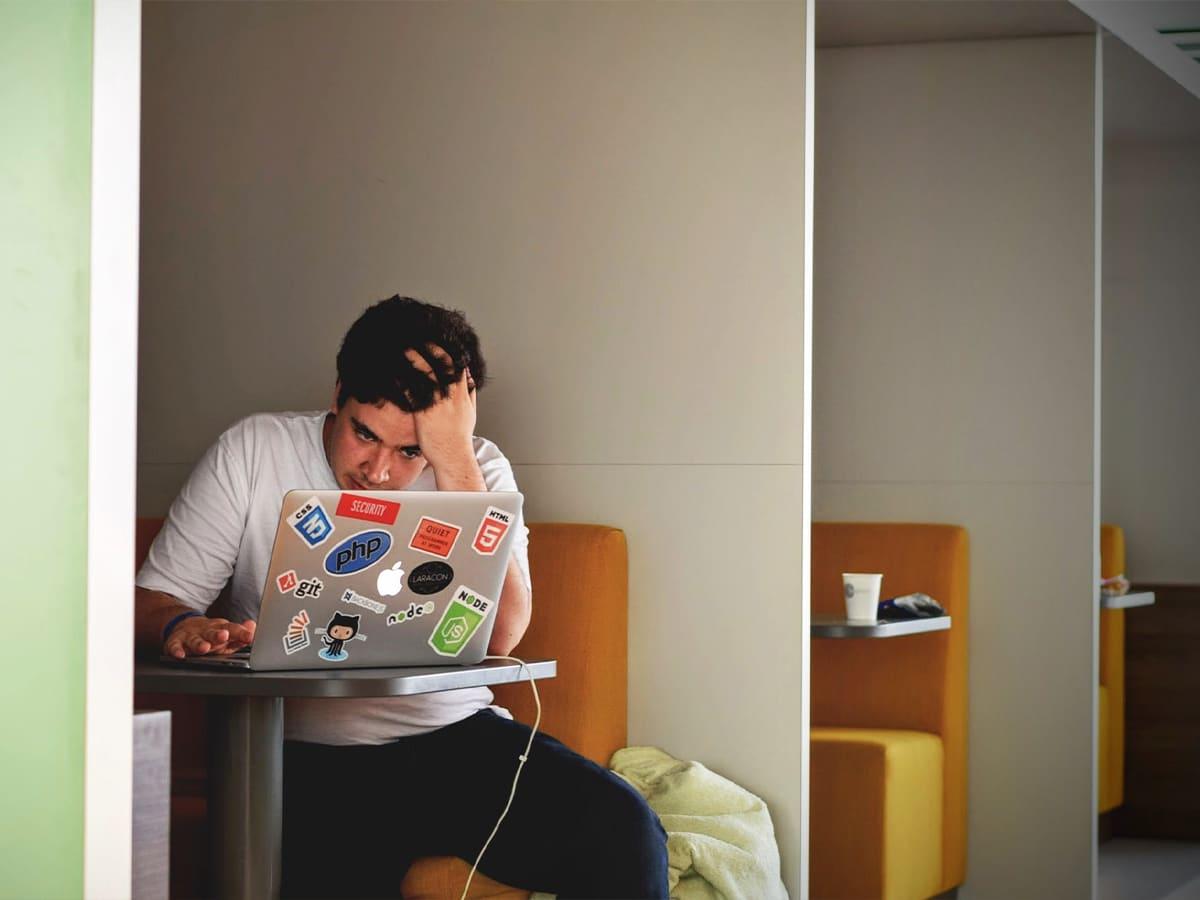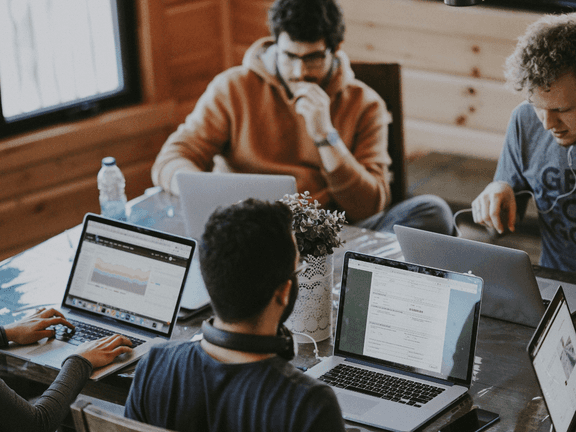As technology advances, expectations of employees increase, which can have the unfortunate flow-on effect of increasing work stress and anxiety. Tackling the issue head-on, I sat down with Mike Schneider, the managing director (CEO) of Australian hardware icon Bunnings, to uncover how he is helping employees cope with anxiety and work stress, while also outlining leadership strategies for the workplace.
Table of Contents

Types of Work Pressure
The last 12 months have seen individuals from all walks of life, whether they are Prime Ministers, newcomers to a job, executives or students, grappling with varying degrees of pressure. Self-doubt is common and these feelings, when combined with an unsupportive environment, can breed anxiety and stress. Of course, stress, in its simplest form, is a combination of surrounding environmental factors, including friends, family, work and how people cope with stress is pivotal to their lives.

3 Ways to Cope with Anxiety & Work Stress
Stress usually isn’t caused just by an isolated incident but by a build-up of factors and experiences. It’s important to recognise the signs of stress early because, as Schneider explains, “If you don’t address underlying issues and step into a potentially more stressful situation, it can have an exponential impact on your mental well-being.”
Once identified, here are three ways to manage your stress:
1. Having a Support Network
Surrounding yourself with a strong support network, particularly family and friends is essential to coping with anxiety and work stress. “Your family and friends have known you for a long time, and they can help you stay grounded and centred,” Schnieder explains. Having people in your life who understand your journey and see the “real you” can make a significant difference in managing stress.
2. Physical Activity
Physical activity is also very helpful in coping with stress. “When I’m feeling stressed, I like to put some distance between myself and whatever is causing the stress. For example, I’ll go for a long walk with my dog or go for a run,” reveals Schneider. It’s important to use exercise as a way to disconnect and get a fresh perspective.
Schneider continues, “During these activities, I’m not holding my mobile phone, and I’m not consciously thinking about the stressful situation. Instead, I’m absorbing a bit of nature, getting some fresh air, and allowing my body to work in a different way. I find that these activities help me recalibrate and reset.”
3. Acknowledgement
One of the biggest things Schneider says people forget is openly acknowledging when they feel stressed. Particularly relevant for men, “There’s a tendency for some men to think, ‘I don’t want to talk about it,’ but that’s actually the worst thing you can do,” he notes.
Whether it’s family, friends or a professional it is important to discuss your feelings. To put it into perspective, “No one thinks twice about getting a personal trainer or a business coach. However, there’s still some stigma around seeking help from a counsellor or a psychologist, which I think needs to change,” Schneider adds. He believes that having the right people to talk to is an essential part of managing stress and anxiety.

How to Disconnect and Reduce Workplace Stress and Anxiety
In today’s fast-paced and always-connected world, finding the time to disconnect can be challenging. However, it’s essential for our mental and physical well-being. Below are some things we can do to help disconnect:
Setting Boundaries
Boundary setting for both personal and professional work is so important as the need to define when one is working and when one is not can allow for strict boundaries. For those in leadership roles, Schneider says “it is crucial to be mindful of not intruding on people’s time, on weekends if I have an idea, I will email that person on the Monday about it instead of a Sunday… that email could disrupt that person’s time off and create unnecessary stress.”
Truly Disconnecting
Schneider also sees the need to truly disconnect from our devices and the distractions they bring. “Try handing your phone to a stranger and letting them walk 10 metres away. You’ll feel real anxiety very quickly,” he remarks.
Some good ways to disconnect are, putting your phone away, turning it on flight mode or leaving it behind when doing activities such as going for a walk. By avoiding the device, individuals can have deeper, more human connections with others as well as engage in activities such as reading, getting out in nature, or doing physical activities.
What Workplaces Can Do to Reduce Stress and Anxiety
Workplaces play a huge role in reducing stress and anxiety, Schneider emphasised that organisations should ensure they have frameworks and set boundaries for what is acceptable in terms of work-life balance. Workplaces should also ensure they have rituals and cultural activities to bring people together and foster a sense of community.
In these uncertain times, it is crucial for individuals and organisations to prioritise mental well-being. By setting boundaries, disconnecting from devices, and fostering a supportive work culture, we can create a healthier and more productive environment for everyone involved.

Future of the Workplace
The future of the workplace is undergoing a positive shift towards a more inclusive and compassionate approach to employee well-being. Schneider remarks, “And I think one of the great steps forward in modern workplaces today is that it’s now much more okay to talk about the fact that you’re not feeling okay.”
In the past, there was an undue focus on physical injuries, often neglecting the equally important mental health of employees. “We looked at physical injuries, but not mental ones.” By fostering a culture of curiosity and open conversations, workplaces can elicit and address mental well-being concerns that may otherwise go unnoticed.
The importance of speaking out about mental health struggles cannot be understated, and Schneider praises the younger generation for their openness with this, “I think your generation is much better at that and expressing that to leadership and speaking their truth in a constructive and productive way.” Through this shift towards acknowledging and addressing mental health, we can ensure a more supportive and understanding workplace environment for future generations.

About the author: Harrison Kennedy is an Australian-based international fashion model and the co-founder of Really Mental, a podcast focusing on mental health and identity. Since its inception, Really Mental has featured conversations with young, influential guests living in the spotlight, including Radhi Shetty, Lauv, Lexi Jayde, Johnny Orlando, JP Saxe, Chelsea Cutler and Nicole McLaughlin. Harrison’s passion for mental health stems from his own personal experiences in the creative industry mixed with his own struggles with anxiety and loneliness.














